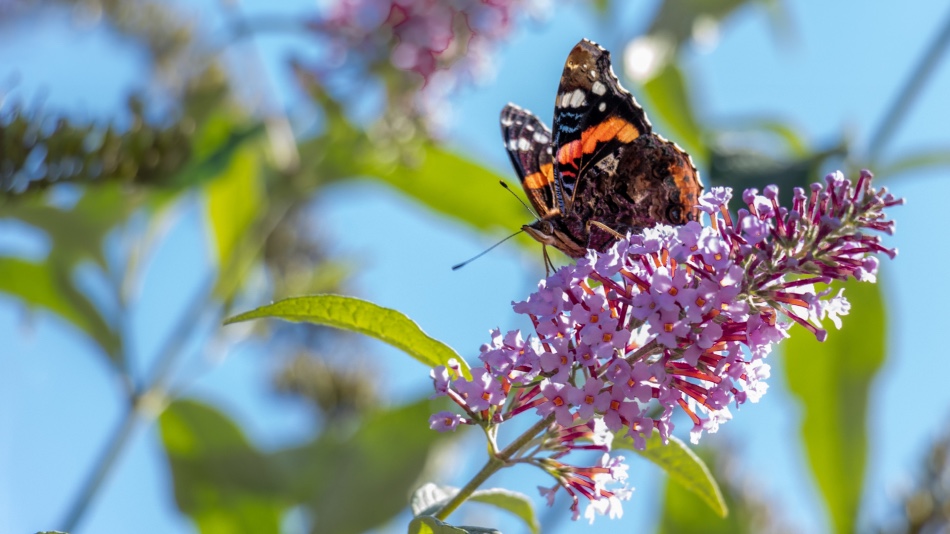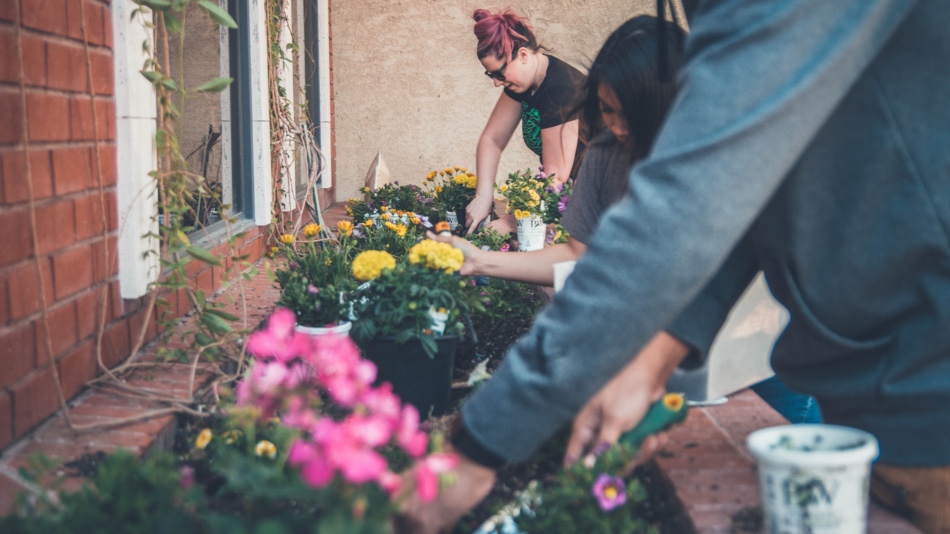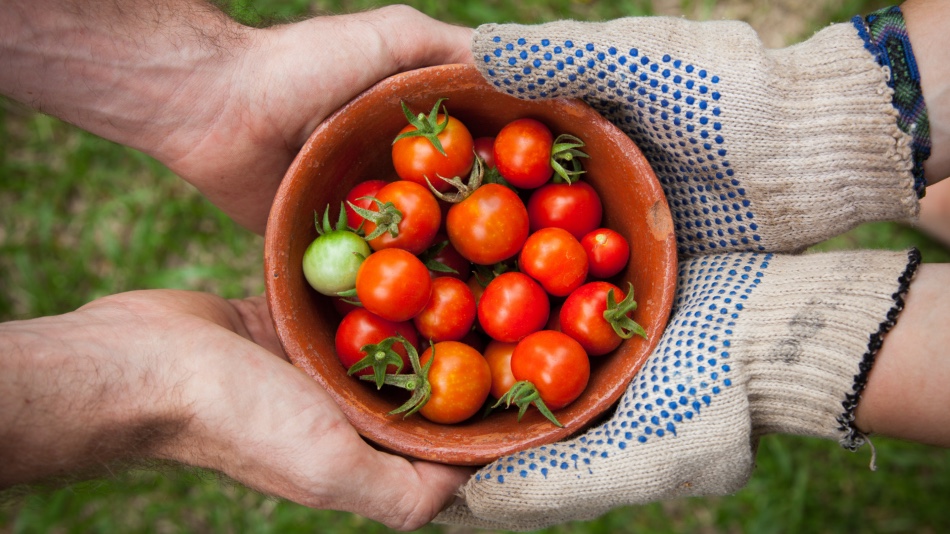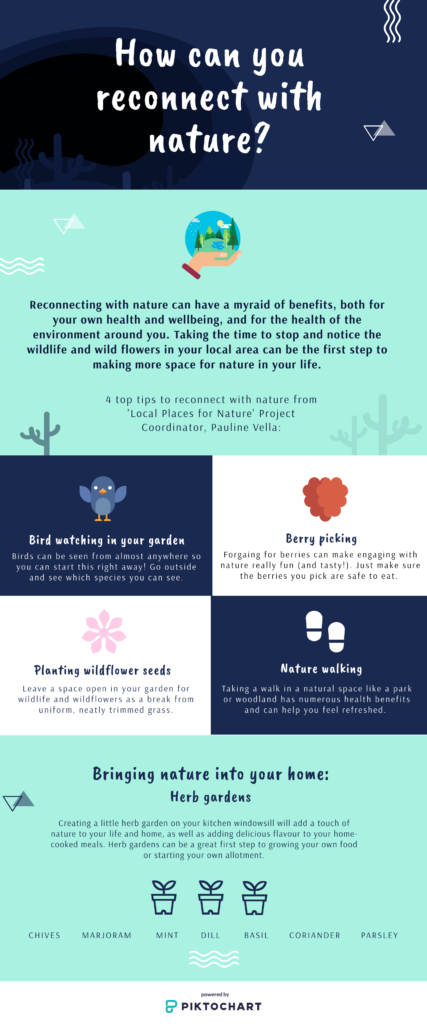Over 800 starter packages to grow small nature gardens are available for community groups and councils to help restore wildlife across Wales.

Community groups across Wales will be able to grow free butterfly, fruit and wildlife gardens to help bring wildlife back with newly launched government-funded packages.
The ‘Local Places for Nature’ scheme is offering over 800 pre-paid starter packages that community groups across Wales can apply for, designed by Welsh environmental charity Keep Wales Tidy. The packs contain all the seeds, tools, instructions and materials needed to start a small nature project, including support from project officers to help you get started.
Deputy Chief Executive of Keep Wales Tidy, Louise Tambini, said: “Urgent action must be taken if we are going to reverse the decline of nature in Wales. We’re excited communities across the country now have the opportunity to make a real difference.”
A recent study led by the University of Bristol found that urban habitats such as small gardens provide havens for bees, which are vital to pollinating wild plants that support wildlife.

The scheme aims to restore nature across the country through the combined effect of many community groups’ diverse gardens.
Project Coordinator for North Wales, Pauline Vella, said that the ambition of the project is for everybody to be able to see some element of nature from their doorstep.
There are 66 ‘development packages’ up for grabs, which are for larger-scale, more ambitious community projects, including a sustainable urban drainage system, a wild garden and a community food growing area.
Any group with publicly-accessible land and landowner permission can apply, including residents’ associations, places of worship, guides, scouts and after school clubs.

As well as helping to restore wildlife, the garden growing scheme will have a whole host of social and health benefits.
Tambini said the project aims to promote equality, fairness and inclusivity for the most disadvantaged.
In the first week since the official launch on the 26th February, Vella said they have already received over 100 applications from various groups and local councils, including a community enterprise café in a financially deprived area which will help people grow food and learn to cook budget-friendly meals with seasonal vegetables.
If the packages are oversubscribed, applications from the most deprived physical environment locations will be prioritised.
The ‘Local Places for Nature’ project ticks every box, said Vella. “This project is all about nature – the plants, animals and insects we’re seeing – but actually there are many health and wellbeing benefits, as well as community engagement, bringing all those people together, sharing experiences and learning skills; that’s a by-product of this kind of project,” she said.

One of the many projects planned as part of the scheme is an allotment for communities to grow food, hoping to be set up by a community group in North Wales. They have previously worked with a school to create a wildflower meadow with a path leading from the school into forest classrooms for outdoor learning.
“The children can learn about growing food and start to really connect with where their food is coming from,” said Vella.
An intergenerational project bringing together college students with special needs, young people with dementia and the older communities hope to start growing food as well.
“It’s a really lovely story bringing everybody together for that common aim,” Vella said.

Following our recent story covering the current threat to wildlife in Wales posed by Brexit transition uncertainty, this new initiative comes as part of a £5m Welsh Government ‘Local Places for Nature’ fund, which is “committed to acquiring, restoring and enhancing nature on your doorstep,” according to the government.
The deadlines for each application round are 6 March, 27 March and 17 April. For all the information on land areas needed for each project, a full list of materials included in each package, an FAQ guide and how to apply visit Keep Wales Tidy’s page about the scheme.
As the packages are awarded and distributed across Wales during the next few months, look out for new nature gardens popping up in your local area.
Tiny forests might be the next nature site you’ll see on your doorstep in the future, as Keep Wales Tidy look into this as a potential project to invest in as part of the ‘Local Places for Nature’ scheme. Imagine an area the size of a tennis court full of hundreds of trees of many different species: that’s a tiny forest. They are extremely biodiverse, dense and compact forests, often in urban settings.
To get involved in creating a new nature space you can check out community groups to join in your local area on Keep Wales Tidy’s interactive map.

